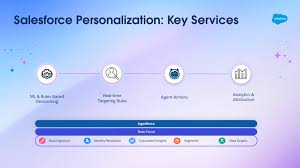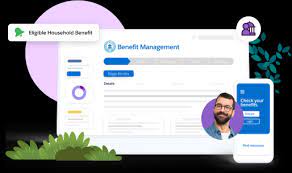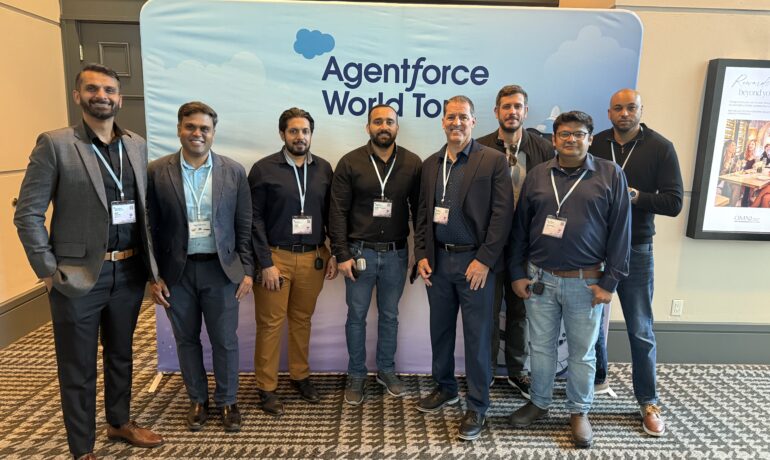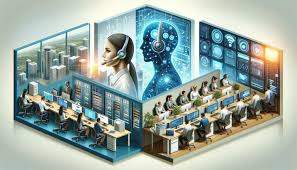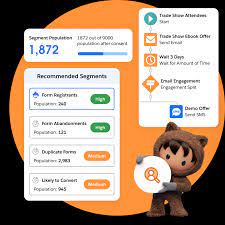HubSpot vs. Salesforce Marketing Cloud Growth: Which Marketing Automation Platform is Right For You? EDITOR’S NOTE: Due to Marketing Cloud Growth being a new release, some of the SFMC data reflects Marketing Cloud Engagement as well. Salesforce and HubSpot are both powerful customer relationship management (CRM) platforms, but they cater to different needs and business sizes. Salesforce, with its extensive customization and robust integrations, is better suited for growing enterprises, while HubSpot is better suited for small to medium-sized businesses that don’t require modular, ease of growth solutions. Salesforce is a leading CRM platform, largely preferred for its extensive suite of features and functionalities. It offers high-level customization tools and advanced predictive analytics. Therefore, Salesforce is ideal for growing businesses, complex sales organizations, and large enterprises with deeper needs for configurability and scalability. HubSpot vs. Salesforce: A High-Level Comparison Beyond Features When organizations evaluate Customer Relationship Management (CRM) solutions, Salesforce and HubSpot frequently appear on their shortlists. While many online resources focus on feature-by-feature comparisons, this post takes a different approach—highlighting the key strategic differences between the two platforms. Why a Features-First Approach Isn’t Enough Editorial Note: We do not earn commissions from vendors covered on this site. Vendor Overviews Both Salesforce (founded 1999) and HubSpot (founded 2006) are leading CRM providers with strong market presence. Products & Evolution Marketing & Sales Dominance Key Differences to Consider 1. Scope & Complexity “HubSpot has a higher floor; Salesforce has a significantly higher ceiling.” — Reddit User 2. Native vs. Integrated Marketing 3. Consultant & App Ecosystems 4. Pricing Models 5. AI & Automation 6. Business Process Automation 7. User Experience (UX) Final Considerations Which is right for you? Before making a decision, evaluate your unique business needs—not just the platform differences. Investing in flexible CRM software improves efficiency through task automation and creates an invaluable information resource for your employees. Key Differences at a Glance Feature HubSpot Salesforce Marketing Cloud Growth Ideal Use Case Inbound marketing Omnichannel customer journeys and outbound sales and marketing communications, and inbound marketing Best for Small Business X Best for Mid-Market X Best for Enterprise X Software Categories Ranked #1 in 69 164 5 Star Customer Reviews 8260 15055 Positive Reviews of Ease of Use 1095 4674 All Salesforce plans let you send 5,000 email marketing campaign messages daily — a generous allowance we haven’t seen from any other provider. Here are some of the core capabilities of Salesforce Marketing Cloud: Salesforce has powerful APIs and a vast array of third-party integrations that can efficiently handle diverse business processes and requirements. Additionally, the CRM offers various tools and options for ease of use and rapid scaling. It is a reliable cloud solution that can help businesses dive deeper into data-driven decision-making to optimize sales and operations. Key Features in HubSpot Marketing Hub From automation features for attracting, nurturing, and converting leads to blogging, SEO, and ad management, HubSpot has some value to offer marketers while lacking the robust features of Marketing Cloud. Here are some of the core features of this solution: Customization and Flexibility HubSpot Salesforce Customization Custom objects, display information, basic API support, UI extensions, but with limitations Customizable sales view, standard tabs, record types, page layouts, cust fields, help, content, and business processes with in-depth customization for your business App integrations HubSpot App Marketplace for app integrations Extensive AppExchange library with more than 7000 apps Although HubSpot offers customization for display, layouts, and data models, there are limited options. The HubSpot App Marketplace also helps with swift app integrations. However, it can’t beat Salesforce in customization and flexibility. With Salesforce, you get high-level customization features, allowing you to set up your data, websites, layouts, configurations, records, fields, interfaces, and several other options the way you want. The AppExchange platform offers ready-to-install third-party applications, building blocks, pre-built templates, scalable data solutions, guides, and other relevant resources for CRM processes. Best for Pricing Salesforce wins because its entry-level plan is more feature-packed than HubSpot’s and providees 5,000 free daily emails. Additionally, if you desire more features, the price jump from Starter to Pro isn’t as jarring as HubSpot’s jump from Starter to Professional. Detailed Platform Comparison 1. Target Audience HubSpot excels for: Salesforce Marketing Cloud Growth is built for: 2. Core Capabilities HubSpot Strengths: SFMC Growth Advantages: This platform offers many marketing tools in one centralized place. They’re all part of two unique modules: Builders and Studios. Salesforce comes out ahead in the category of reporting and anlytics thanks to its comprehensive toolset and visually appealing dashboards. The AI-powered Einstein tool and its predictive anlaytics and decision-making support add real value. 3. Implementation Factor HubSpot SFMC Growth Setup Time 36 days 17 days Training Needed 10-20 hours 15-20 hours HubSpot can build customized onboarding plans that are aligned with specific business goals. It extends technical and strategic guidance to help users at every step. Moreover, the HubSpot academy further helps with implementation strategies and continuous support through unlimited access to onboarding content, playlists, boot camps, and communities. For smoother onboarding, Salesforce offers detailed product documentation, demos, and learning resources. Its extensive self-help portal and user community make it even easier to onboard new customers. The Trailhead training system is a go-to resource for exploring Salesforce and caters to learners at all levels and roles. Key Takeaway: HubSpot offers a better user experience and ensures smoother onboarding. However, businesses willing to invest time and resources in understanding functionalities and enhancing their workforce skills with proper training can go with Salesforce. 4. AI & Automation HubSpot AI: Salesforce Einstein: User Experience Reviews Cons of HubSpot Decision Guide Choose HubSpot if you: Choose SFMC Growth if you: The Bottom Line Long-term scalability: Which platform better supports growth and complexity HubSpot allows businesses to expand their operations with increasing users, marketing intact tiers, unlimited workflow automation, and other add-ons. These options are best for startups and small-scale businesses. However, it lacks the advanced customization, analytics, and reporting features required for complex business needs. Salesforce is a top-tier CRM tool that

